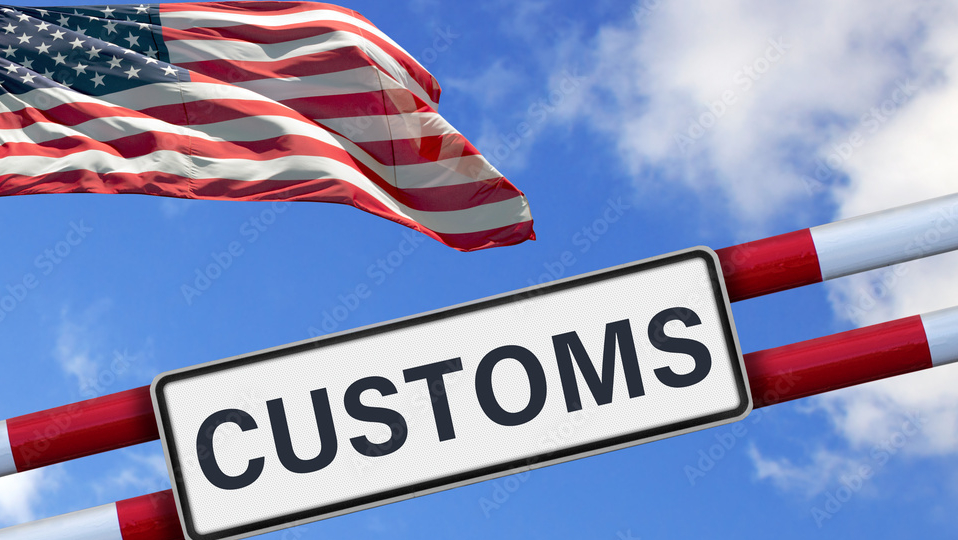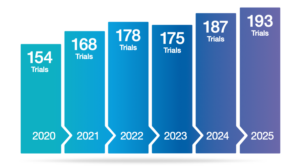
Trump Targets Overseas with 100%-Tariff
Overnight, US President Donald Trump broke previous tariff agreements with the United Kingdom and the EU, announcing that from 1 October, patented medicines not produced in the US will be subject to a 100% tariff.
Tariffs on medicines are unprecedented. Until now, there has been broad agreement that patient care should take priority over economic interests. Yet, in the early hours of Friday, 25 September, US President Donald Trump once again discarded that principle for the United States. From 1 October, he plans to impose a 100% import tariff on patented medicines that are either not manufactured in the US or whose manufacturers do not invest in the country, effectively forcing companies to build or use production facilities on American soil.
The impact of such a move on investments from other regions can be clearly seen in the example of the United Kingdom. In September, companies including Merck & Co, Eli Lilly & Company, AstraZeneca, and Sanofi withdrew investment commitments totalling USD 2 billion after negotiations over higher drug prices failed or they were dissatisfied with government support for implementation. Initially, Trump’s announcement appeared to put the “preferred partnership” in life sciences, agreed with the UK government in May, into question. However, 24 hours after the overnight announcement, a spokesman clarified that the 100% tariff would only apply to countries without a trade agreement with the US. The EU, Japan, and the UK are therefore spared this ruinous 100% tariff, while Switzerland remains affected.
Trump’s declaration of a trade war initially caused paralysis in Europe, but also a readiness to respond. The spokesman for the European Commission’s trade commissioner stated, later confirmed by the White House: “The clear, flat 15% tariff cap for EU exports provides assurance that European economic actors will not face higher tariffs.” The Swiss industry association, scienceindustries, described the situation privately as a “price hammer” with many details still to be clarified. Annette Luther, president of scienceindustries, demanded: “Switzerland must now act decisively to advocate for open markets and fair conditions, using all diplomatic levers to secure access to the US market.” According to scienceindustries, the US is the second most important export market for Swiss pharmaceutical manufacturers, accounting for 25% of their exports. Although 51% of Swiss medicines are exported to EU member states, the package price is significantly lower than in the US. Leerink analysts pointed out during the day that most multinational pharmaceutical companies are well prepared for the tariff, as they had already committed to building production facilities. Trump had clarified in his original post on Truth Social that only projects already underway would qualify for a tariff exemption.
Han Steutel, president of the powerful German pharmaceutical association vfa, criticised the decision: “The announced import tariffs would have severe impacts on international supply chains, increase the cost of drug production, and jeopardise the supply of patients – both in the US and Europe. We are already seeing investments being frozen. This is the last thing the German economic location needs,” said vfa president Han Steutel. Around 25% of German pharmaceutical exports go to the US, equivalent to approximately €27 billion in 2024. In earlier statements, Steutel emphasised that the EU pharmaceutical market far exceeds the size of the US market. He stressed that fragmentation must now be overcome, and the EU must confront the US as a single internal market.
Nathalie Moll, director of the European Federation of Pharmaceutical Industries and Associations (EFPIA), echoed this view and called for urgent discussions: “The EU and the US already have a trade agreement; urgent talks are needed on how to avoid tariffs on medicines that would harm patients in the EU and the US.”
Ireland’s deputy prime minister, Simon Harris, stated that the impact of the announcement would be examined, but emphasised that the joint statement of 21 August on the EU-US tariff agreement “made it absolutely clear that any new tariffs on pharmaceuticals announced by the US under its Section 232 investigation would be limited to 15% for products exported from the EU.”
Viola Bronsema, managing director of the German biotechnology association BIO Deutschland, explained that it is not only the tariffs that distort competition, but also the potential reduction in US drug prices that must be considered: “The US is an important market for German biotechnology companies. Tariffs of 100% therefore pose a major challenge for biotech firms, particularly given that the US government also intends to significantly reduce prices for innovative biopharmaceuticals. Precursors for production come from all over the world, and a trade policy with high tariffs endangers supply chains and, consequently, reliable and affordable patient care. For some companies, relocating production to the US could be an option. For most companies in the sector, especially small and medium-sized enterprises, this is hardly feasible or would only be achievable very slowly. Europe should now do everything it can to strengthen itself as a location for biotechnology.”
The new tariff threat comes only a few days after the US also launched a Section 232 investigation into diagnostics and medical technology.
The Chinese government’s response was surprisingly restrained, as China sells very few patented medicines in the US (4%) but is critical for the supply of APIs and generics, which account for almost 90% of prescriptions in the US. The Chinese Ministry of Commerce urged companies not to engage in price wars.
According to Jeremy Levin, one of the most influential biotech CEOs in the US, Trump’s tariffs primarily affect the roughly 3,000 US biotech SMEs that collaborate with Chinese companies for cost reasons. Levin warned that Trump’s tariffs “strike at the heart of the innovative biotechnology industry” in the US.
The US Federal Reserve has also warned of increased inflationary risks arising from the pharmaceutical tariffs.




 gov.uk
gov.uk